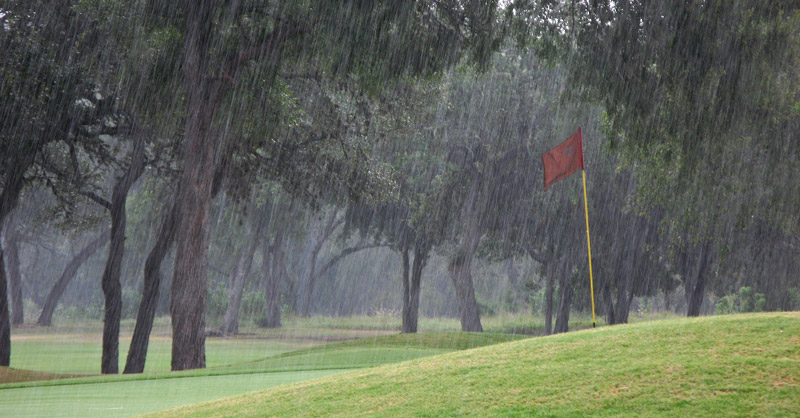The unpredictability of predicting the weather

Matt Neff
According to the great Bob Dylan, “You don’t need a weatherman to know which way the wind blows.” Hot take alert — Bob was not a superintendent and was almost certainly not talking about actual weather, but A), I’m not intelligent or motivated enough to figure out what he actually meant, and B), I needed a catchy opening line related to weather.
While it doesn’t take a genius to discern current weather conditions, we’re more interested in which way the wind will be blowing a week in advance (along with all the other weather data we need). With apologies to the great Mr. Dylan, that does, in fact, take a weatherman.
Almost everyone reading this (so six of my seven readers — mainly family members) just said something along the lines of, “Too bad they’re never right,” or “I wish I could be wrong all the time and still keep my job.” We love to trash meteorologists in this business, don’t we? Maybe we should cut them a bit of a break. After all, as members of an often-misunderstood profession ourselves, it’s the least we can do for the members of a similarly misunderstood profession.
When you think about what meteorologists do, it’s frankly amazing that they’re right as often as they are. They are essentially trying to predict the behavior of the Earth’s atmosphere and how those behaviors will combine and interact with each other to create weather.
Our atmosphere always is in flux. It’s constantly changing based upon the interactions of temperature, pressure and moisture gradients and numerous other variables — both known and unknown — so meteorologists are, more or less, trying to hit a moving target every day.
Our atmosphere is composed of billions of molecules. To forecast with 100-percent accuracy 100 percent of the time, meteorologists would need a complete understanding of how all of these molecules are behaving, and all the variables that could affect that behavior. They also would need to measure all that with absolute accuracy all the time.

Photo: dlanier/E+/Getty Images
Remember the old true/false test-taking adage? More often than not, statements that contain “always” or “never” frequently are false because there simply aren’t a lot of absolutes in life. In other words, we have little — if any — completely perfect knowledge of anything in the universe. Meteorology is no exception.
Despite this, the weatherman seems to do pretty well. According to the National Oceanic and Atmospheric Administration, a seven-day forecast can predict the weather correctly 80 percent of the time, and a five-day is correct 90 percent of the time.
I know what you’re thinking right now. “Of course the government agency in charge of forecasting the weather would say they’re killing it.”
Be paranoid all you want. Who’s ever heard of a government agency spinning facts to validate their own existence? No way … never happens, especially with the well-oiled machine in Washington right now.
The main problem we have with weather forecasts is the result of how we consume the information. No matter the source, when we see a forecast, we expect nothing less than 100-percent accuracy and 100-percent precision, which simply isn’t possible when you’re dealing with something as massive and complex as the Earth’s atmosphere.
We further compound this by relying on weather apps for our information. Keep in mind that apps are electronic resources that are automatically updated whenever the models that are used as their data source are run. There’s likely little-to-no human intelligence — and therefore no experienced analysis — involved with the updates, so it would follow the accuracy might not always be what we’d hope.
We make our livings trying to achieve perfection despite the curveballs Mother Nature throws our way. No one understands that more than a meteorologist.











